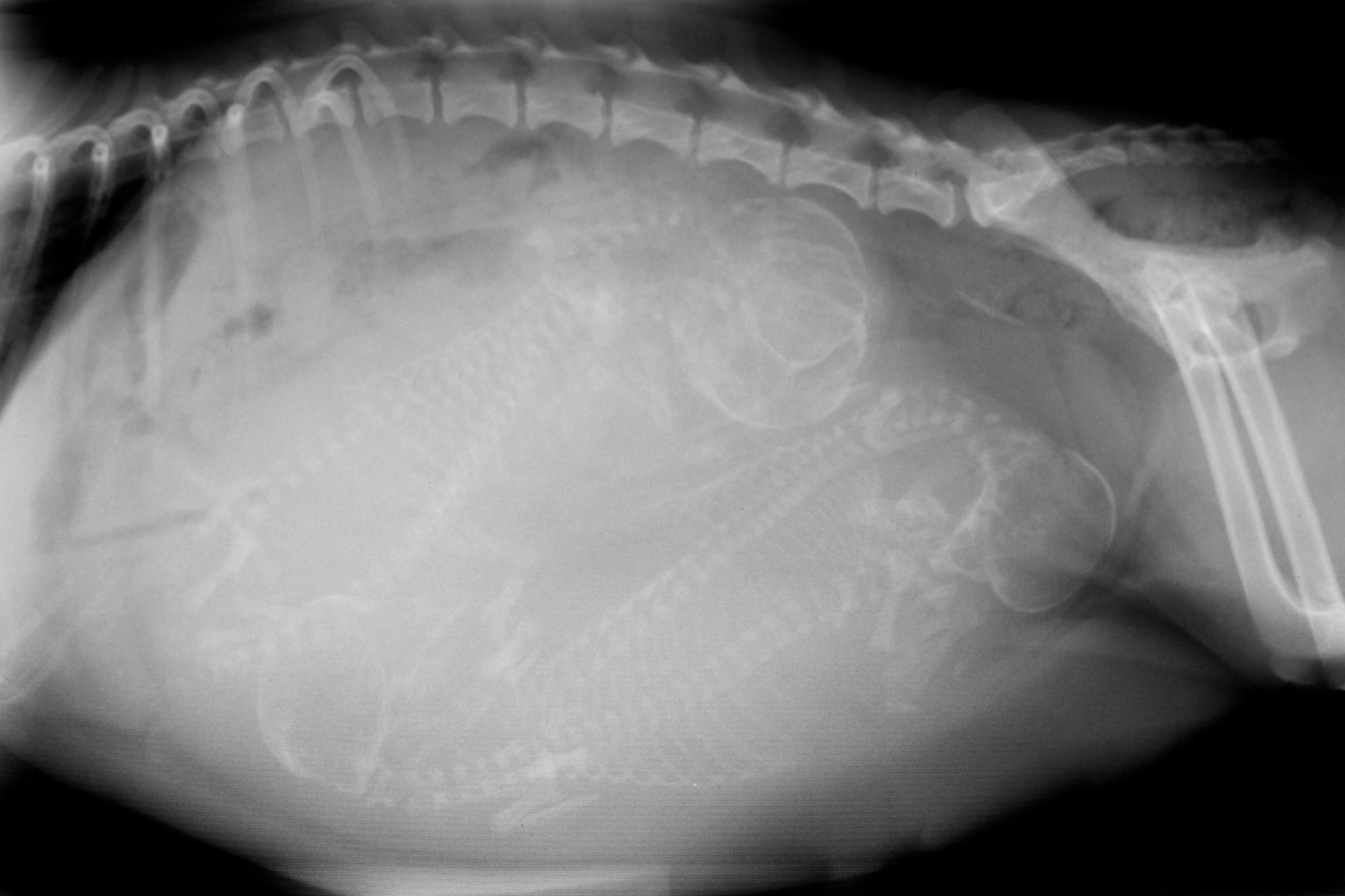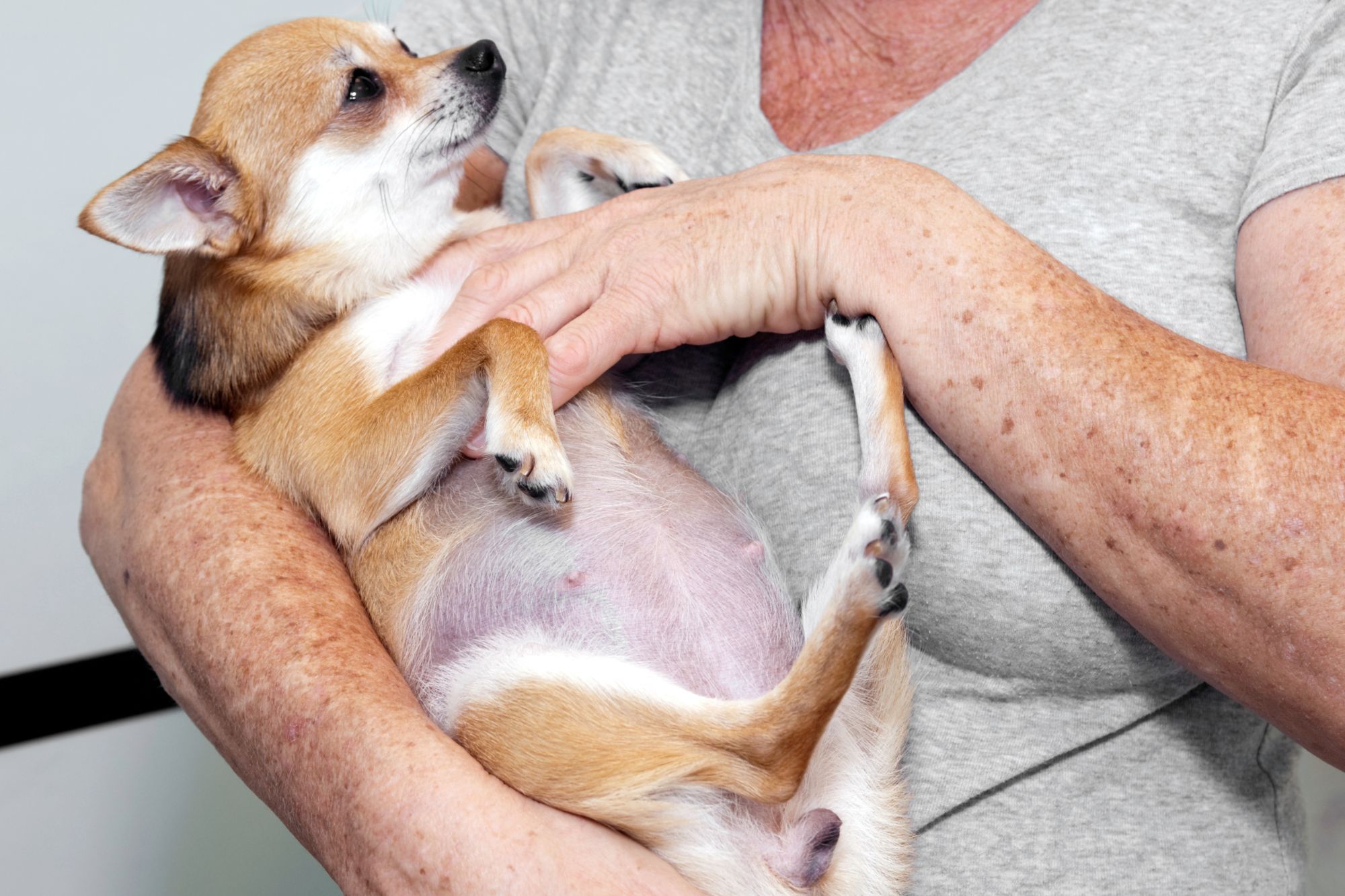
The Ultimate Guide: How to Determine if Your Dog is Pregnant from the Comfort of Your Home
Welcome to the ultimate guide on how to determine if your dog is pregnant from the comfort of your home. Whether you suspect your furry friend may be expecting or you simply want to be prepared, we’ve got you covered. In this comprehensive article, we will walk you through the telltale signs and symptoms of canine pregnancy, allowing you to become a dog pregnancy detective in no time.
From changes in behavior and appetite to physical transformations, there are several indicators that can clue you in on whether your dog is expecting puppies. We will delve into these signs, providing valuable insights and tips for accurate detection. No need to wait for a vet appointment – you can start gathering information and taking appropriate steps right away.
Be ready to play the role of Sherlock Holmes as we guide you through this exciting but sometimes mysterious journey. Whether you are a first-time dog owner or have breeders in your midst, having the knowledge to determine if your dog is pregnant from home will empower you and ensure the well-being of your beloved pet. Let’s get started!
Signs and symptoms of pregnancy in dogs
Pregnancy in dogs can bring about various changes in their behavior, physique, and overall well-being. By paying close attention to these signs, you can start to piece together the puzzle and determine if your dog is expecting.

1. Changes in Behavior: One of the first signs of pregnancy in dogs is a change in behavior. Your typically energetic and playful companion may become more subdued and seek extra comfort and attention. She may also display nesting behaviors, such as searching for a cozy spot to rest or rearranging her bedding.
2. Changes in Appetite: Pregnant dogs often experience changes in their appetite. Some may have an increased appetite, while others may become more finicky or lose interest in food altogether. If you notice any significant changes in your dog’s eating habits, it could be a sign of pregnancy.
3. Physical Transformations: As the pregnancy progresses, you may start to notice physical changes in your dog’s body. Her nipples may become enlarged and change in color, and you might observe swelling in her abdomen. However, keep in mind that these changes can also be indicative of other health issues, so it’s essential to consider them in conjunction with other signs.
How long is a dog’s gestation period?
Understanding the gestation period of dogs is crucial when determining if your dog is pregnant. On average, a dog’s gestation period lasts approximately 63 days, but it can vary between 58 and 68 days. This timeline starts from the day of conception, which can be challenging to determine precisely.
It’s important to note that smaller breeds may have shorter gestation periods, while larger breeds may have longer ones. Additionally, individual variations are common, so it’s best to consult with a veterinarian to get a better estimate for your specific dog.

How to conduct a home pregnancy test for dogs
While there are no over-the-counter pregnancy tests specifically designed for dogs, there are a few methods you can try at home to get an indication of pregnancy. However, it’s important to remember that these tests are not foolproof, and consulting with a veterinarian for confirmation is always recommended.
1. Abdominal Palpation: Around three to four weeks into pregnancy, a veterinarian may be able to detect the presence of developing puppies through abdominal palpation. This method involves gently feeling the dog’s abdomen for the presence of small, grape-sized lumps. However, it requires experience and expertise, so it’s not advisable to attempt this at home without professional guidance.
2. Hormone Test Kits: There are hormone test kits available that can detect the presence of pregnancy-specific hormones in your dog’s urine. These kits work similarly to human pregnancy tests and are relatively straightforward to use. However, they may not always provide accurate results, especially during the early stages of pregnancy.
3. Observation and Record-Keeping: Keeping a close eye on your dog’s behavior and physical changes can also be a valuable method of determining pregnancy. By observing any signs mentioned earlier and keeping a record of them, you can create a timeline that may help confirm pregnancy. However, this method is subjective and requires careful monitoring.
Interpreting the results of a home pregnancy test
If you’ve attempted a home pregnancy test for your dog and received positive results, it’s important to interpret them cautiously. As mentioned earlier, these tests are not always accurate, and false positives or false negatives can occur.
A positive result should be taken as a strong indication of pregnancy, but it’s essential to consult with a veterinarian to confirm it. On the other hand, a negative result does not necessarily rule out pregnancy, especially during the early stages. If you have any doubts or concerns, seeking professional guidance is always recommended.
When to consult a veterinarian for confirmation
While conducting home pregnancy tests can provide valuable insights, it’s crucial to consult with a veterinarian for confirmation. A veterinarian will have the necessary expertise and tools to accurately determine if your dog is pregnant.
It’s recommended to schedule a veterinary appointment around three to four weeks after the suspected breeding date. During this visit, the veterinarian may perform an ultrasound or conduct a blood test to confirm pregnancy. These methods are more reliable than home tests and can also provide additional information about the number of puppies and their overall health.
Preparing for a pregnant dog’s needs
Once you have confirmed that your dog is pregnant, it’s important to start preparing for her changing needs. Pregnancy brings about physiological and hormonal changes that require special attention and care.
### Nutrition and Diet for Pregnant Dogs
A pregnant dog’s nutritional needs differ from those of a non-pregnant dog. To support her health and the healthy development of the puppies, it’s crucial to provide a balanced and nutritious diet.
Switching to a high-quality, commercially available dog food formulated for pregnant or nursing dogs is recommended. These foods are designed to meet the increased energy requirements and provide essential nutrients such as calcium, protein, and vitamins.
### Exercise and Care During Pregnancy
While exercise is essential for a dog’s overall well-being, it’s important to adjust the intensity and duration of exercise during pregnancy. Moderate exercise, such as regular walks, is generally beneficial and helps maintain muscle tone and mental stimulation. However, activities that put excessive strain on the dog’s body should be avoided.
Regular veterinary check-ups are also crucial during pregnancy to ensure the health and well-being of both the mother and the puppies. The veterinarian can monitor the progress of the pregnancy, offer guidance on any specific needs, and address any concerns or complications that may arise.

Nutrition and diet for pregnant dogs
As the due date approaches, it’s essential to prepare for the arrival of the puppies. Creating a comfortable and safe whelping area is crucial to ensure a smooth and stress-free birthing process.
The whelping area should be warm, quiet, and secluded, providing a calm environment for the mother and her puppies. It should be equipped with clean bedding materials, a heat source, and easy access to food and water for the mother. Additionally, having necessary supplies such as clean towels, scissors, and a thermometer on hand is important in case of any emergencies.
Exercise and care during pregnancy
Monitoring your dog’s pregnancy at home can be an exciting and rewarding experience. By familiarizing yourself with the signs and symptoms of pregnancy, conducting home pregnancy tests cautiously, and seeking veterinary confirmation, you can ensure the well-being of your pregnant dog and her future puppies.
Remember, each dog and pregnancy is unique, so it’s always best to consult with a veterinarian for personalized advice and guidance. With proper care and preparation, you can navigate this journey with confidence and provide the best possible care for your beloved pet and her expanding family.
So, put on your detective hat and embark on this incredible journey of discovering if your dog is pregnant from the comfort of your home!
During pregnancy, a dog’s behavior can undergo noticeable changes. While every dog is unique, there are some common behavioral signs that may indicate pregnancy. One of the most prominent changes is an increase in affection. If your dog suddenly becomes more cuddly and seeks more attention from you, it could be a sign that she is pregnant.
Another behavioral change to look out for is nesting behavior. Pregnant dogs often start to create a cozy space for themselves by gathering blankets, towels, or even shredding paper. This nesting behavior is instinctual and serves as a way for the dog to prepare for the arrival of her puppies.
Additionally, pregnant dogs may exhibit a decrease in energy levels. If your normally active and playful dog suddenly seems more lethargic and spends more time resting, it could be a sign of pregnancy. However, it’s important to note that each dog is different, and some may not show a significant decrease in energy.
Just like humans, pregnant dogs often experience changes in appetite. While some dogs may exhibit an increase in appetite, others may have a decrease or even a loss of appetite. These changes can occur due to hormonal fluctuations and the physical changes happening in their bodies.
If your dog suddenly starts eating more than usual and seems to be constantly hungry, it could be a sign of pregnancy. On the other hand, if your dog becomes picky with her food or loses interest in eating altogether, it could also indicate pregnancy. It’s essential to monitor your dog’s eating habits and consult with a veterinarian for guidance on proper nutrition during pregnancy.
Happy Pets | Happy Owners | Happy Sitters
Related posts
 The Ultimate Guide for Finding the Best Dog Sitters in Town
The Ultimate Guide for Finding the Best Dog Sitters in Town
 Can Dogs Eat Pecans? Here’s What You Need to Know
Can Dogs Eat Pecans? Here’s What You Need to Know
 The Complete Guide to Choosing the Right Doggy Daycare Facility
The Complete Guide to Choosing the Right Doggy Daycare Facility
 A Guide to Training Your Cavalier King Charles Spaniel
A Guide to Training Your Cavalier King Charles Spaniel
 10 Adorable Facts About French Bulldog Puppies
10 Adorable Facts About French Bulldog Puppies
 Black and Tan Pomeranians and Other Colors
Black and Tan Pomeranians and Other Colors
